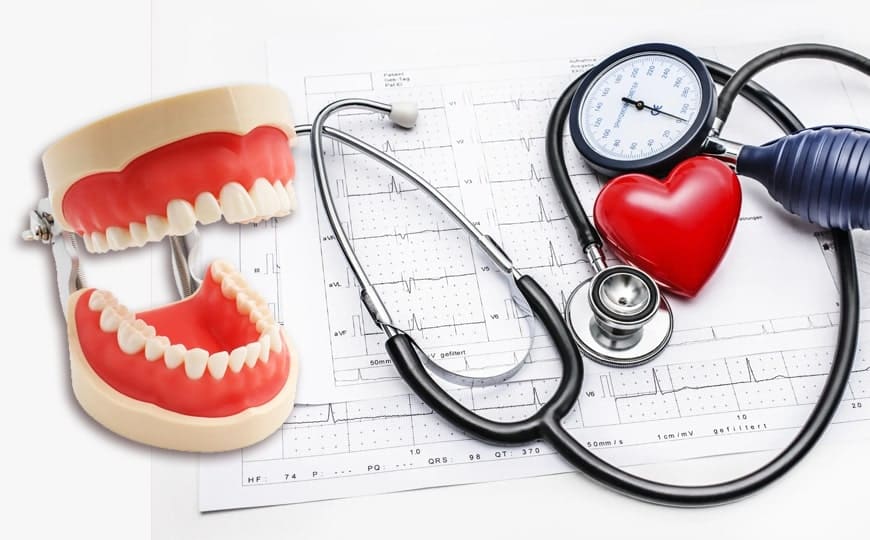Hypertension describes high blood pressure (140/90mm/ Hg).
Many individuals are unaware that they have hypertension, hence why it is referred to as the silent killer’ because in most people there are no visible symptoms.
When you visit a health practitioner, they will want to get an accurate picture of your blood pressure (BP). A normal reading is usually below 120/80 mm/ Hg. A single high reading does not mean you have hypertension.
However, if your BP readings are high, a treatment program, which includes lifestyle changes and prescription medications will be recommended.
At the Dentist, Patients with high blood pressure should have their dentist check their blood pressure at each visit.
Depending on how high the blood pressure is, how well it is controlled, and whether the patient has any other medical conditions.
The dentist can then decide whether or not it is safe for non-emergency treatment to be completed
Implications of hypertension to Oral Health:
1. Often medications that are used to treat hypertension can have effects on the oral environment.
Some may cause patients to experience dry mouth, also known as Xerostomia.
Xerostomia may result in gingivitis, periodontitis, and dental caries. In addition, some patients are more likely to faint when raised in a dental chair too quickly, which is a reaction known as Orthostatic Hypotension.
2. Another side effect of anti-hypertensives is gingival overgrowth.
This makes the gingival very difficult to clean and plaque gets easily trapped.
Most people suffering from hypertension can safely receive limited local anesthetics for dental procedures.
It is extremely important for the patient to inform the dental professionals which medications he/she is on at every dental visit.

